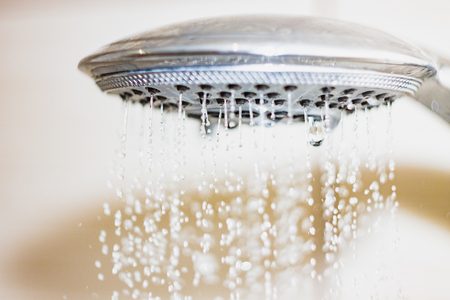Understanding Clutter in the British Home
Across the UK, the meaning of ‘clutter’ has evolved in tandem with shifting lifestyles and cultural values. From cherished collections of Royal memorabilia and hand-me-downs to the quintessentially British “just-in-case” drawer, our relationship with possessions tells a rich story of tradition, sentimentality, and practicality. However, as urban living spaces shrink and environmental awareness grows, many households are re-examining their approach to managing belongings. The rise of minimalism—championed by UK interior designers and influencers alike—has sparked conversations around sustainable living and mindful consumption. For Brits, maintaining a tidy home is no longer simply about surface-level neatness; it’s about fostering a harmonious space that reflects respect for both heritage and the environment. As we embark on this journey to clearer, greener homes, understanding the roots of our clutter is the first step towards responsible disposal and lasting change.
Identifying Reusable and Recyclable Items
When embarking on a sustainable clutter clearing journey, the first crucial step is learning to assess your household items with care and discernment. Not everything that has outlived its purpose for you is destined for landfill—many things can be reused, recycled, or even upcycled into something new. In the UK, where local authorities and communities increasingly champion sustainability, understanding these distinctions is key to responsible disposal.
Assessing Your Household Items
Begin by sorting your clutter into broad categories: items in good condition, items needing minor repair, recyclables, and true waste. Take a practical approach—ask yourself if an item could serve another person or function, or if it’s truly at the end of its life cycle. The following table offers a simple guide:
| Category | Examples | Next Step |
|---|---|---|
| Reusable | Books, clothing, kitchenware, furniture in good condition | Donate to charity shops or give via Freegle/Freecycle |
| Repairable/Upcyclable | Bikes with flat tyres, wooden chairs with loose joints, electronics needing minor fixes | Repair Cafés, upcycling projects, local repair workshops |
| Recyclable | Glass bottles, aluminium cans, paper/cardboard, certain plastics (check local council guidelines) | Council recycling bins or household waste recycling centres (HWRCs) |
| Landfill-bound | Broken ceramics, heavily soiled textiles, mixed materials that cant be separated | General waste collection (as last resort) |
The Importance of Local Knowledge
UK councils often have specific rules about what can be recycled curbside versus what must go to a recycling centre. Familiarise yourself with your borough’s guidelines—many councils offer apps or websites with searchable lists of accepted items. When in doubt, check before binning; contamination can lead to entire batches being sent to landfill.
Avoiding Wishcycling
It’s tempting to toss questionable items in the recycling bin and hope for the best—a habit known as “wishcycling.” However, this can do more harm than good. If you’re unsure whether an item is recyclable locally, consult resources like Recycle Now or your local authority’s website.
This careful assessment not only maximises what can find new life but also ensures that your decluttering is genuinely sustainable—keeping valuable resources circulating within the community and reducing unnecessary landfill waste.
![]()
3. Charity Shops & Local Reuse Networks
Britain’s beloved charity shops are more than just second-hand boutiques—they’re pillars of sustainable living and community spirit. When you clear your clutter thoughtfully, these local gems offer a responsible avenue to pass on pre-loved items, ensuring your surplus finds new purpose and supports meaningful causes. From vintage clothing to gently-used homeware, British charity shops such as Oxfam, British Heart Foundation, and Cancer Research UK help fund vital services across the country while reducing landfill waste.
Embracing Community Reuse Schemes
Beyond the high street, community reuse schemes flourish in cities and rural villages alike. These initiatives—like furniture reuse projects or tool libraries—invite you to contribute items that might otherwise go to waste. By participating, you’re not only decluttering but also enabling others to access affordable essentials, reinforcing a circular economy at a hyper-local level.
The Power of Freecycle Groups
Freecycle and similar online groups connect neighbours eager to give and receive unwanted goods for free. It’s an easy, environmentally friendly way to rehome everything from bookshelves to bicycles, all while fostering a sense of goodwill in your area. By leveraging these networks, decluttering becomes an act of generosity rather than mere disposal—a mindful step towards sustainability and stronger community bonds.
Council Rubbish Removal & Recycling Services
When it comes to sustainable clutter clearance in the UK, council-run rubbish removal and recycling services are your first port of call. From kerbside collections to dedicated local tips (household waste recycling centres), councils across England, Scotland, Wales, and Northern Ireland provide a variety of facilities tailored to their communities’ needs and eco-priorities.
Scheduled Collections: What You Need to Know
Most councils operate regular household waste and recycling collections, with schedules varying by region and even neighbourhood. Black bins or bags are generally for non-recyclable waste, while coloured bins—often blue, green, or brown—are designated for recyclables like paper, plastics, glass, and garden waste. Make sure you check your local council’s website for collection calendars and specific sorting instructions to avoid contamination.
Regional Differences in Waste Management
The UK’s approach to council-run disposal is far from uniform. For example, Wales leads the way in recycling rates and offers food waste collections as standard. Some London boroughs may require residents to book bulky waste pickups online, while rural Scottish councils often operate larger tips but less frequent kerbside collections. Here’s a quick comparison:
| Region | Kerbside Recycling | Food Waste Collection | Bulky Item Pickup | Local Tip Access |
|---|---|---|---|---|
| England (Urban) | Weekly/Fortnightly | Varies by council | Book online/phone | Multiple sites per borough/city |
| Wales | Fortnightly (high coverage) | Standard service | Council-arranged on request | Well-distributed centres |
| Scotland (Rural) | Monthly/Fortnightly | Often unavailable | Limited slots, book ahead | Larger but fewer sites |
| Northern Ireland | Fortnightly/Monthly | Select areas only | Council-arranged on request | Main town centres only |
Your Local Tip: A Sustainable Solution?
If you have large or awkward items—old furniture, mattresses, electronics—that can’t go in your normal bin, your local tip is the place to visit. Many sites now feature extensive recycling bays for everything from textiles and electrical goods to garden clippings. Remember to bring proof of residency and check opening times before you load up the car.
Council services are evolving rapidly as sustainability takes centre stage. By understanding your local options and following regional guidelines, you play a vital part in reducing landfill and supporting Britain’s circular economy.
5. Specialist Disposal for Hazardous & Bulky Waste
Dealing with hazardous and bulky waste requires extra care to ensure we protect both the environment and our local communities. In the UK, responsible disposal is not just about tidiness—its a matter of legal compliance and ethical responsibility.
E-Waste: Handling Electronics Responsibly
Old electronics, or e-waste, such as computers, televisions, and mobile phones, contain valuable materials but also hazardous substances like lead and mercury. Take advantage of local council collection schemes or certified e-waste recycling centres. Many retailers offer take-back schemes for small electricals when you purchase new ones—an easy way to declutter sustainably.
White Goods: Fridges, Freezers, and Washing Machines
Large appliances are often tricky to dispose of due to their size and environmental risks. Councils across the UK provide special collection services for white goods. Alternatively, some charities collect working appliances for reuse, helping families in need while keeping items out of landfill.
Furniture: Donate or Upcycle
If your old sofa or wardrobe is still usable, consider donating it to British Heart Foundation, Emmaus, or other charity shops that accept furniture. For items beyond repair, check if your council offers bulky waste collections or seek out specialist recycling facilities that can safely dismantle and recycle materials.
Hazardous Materials: Paints, Chemicals, and More
Items like leftover paint, batteries, garden chemicals, and fluorescent bulbs should never go in general waste bins. Instead, use designated household waste recycling centres (HWRCs) which have clearly marked areas for hazardous materials. Always check your local authority’s guidelines to ensure proper disposal.
Protecting Our Community and Environment
By choosing specialist disposal methods for these challenging waste types, you help prevent pollution, reduce landfill use, and support a circular economy within the UK. Always seek out local guidance and approved facilities—your thoughtful actions make a lasting difference for both neighbours and nature.
6. Incorporating Sustainability into Everyday Living
Transforming your home into a sustainably clutter-free space goes beyond responsible disposal—it’s about embracing a mindful lifestyle inspired by the UK’s forward-thinking green initiatives. Begin with simple, practical steps: opt for reusable shopping bags, choose local produce at farmers’ markets, and prioritise products with minimal or recyclable packaging. Establish designated areas in your home for recycling and composting, mirroring the best practices adopted in British communities. Make it a habit to donate unwanted items to local charity shops or upcycling centres, supporting both sustainability and social causes. Embrace the contemporary British appreciation for vintage finds by repurposing furniture or décor instead of discarding them. Engage with community-led swap events or Freegle groups to give household items a new lease of life, reducing landfill waste and fostering neighbourly connections. Over time, these everyday habits become second nature, seamlessly blending modern British living with long-term environmental stewardship—proving that sustainability is not just a trend but an enduring way of life.


